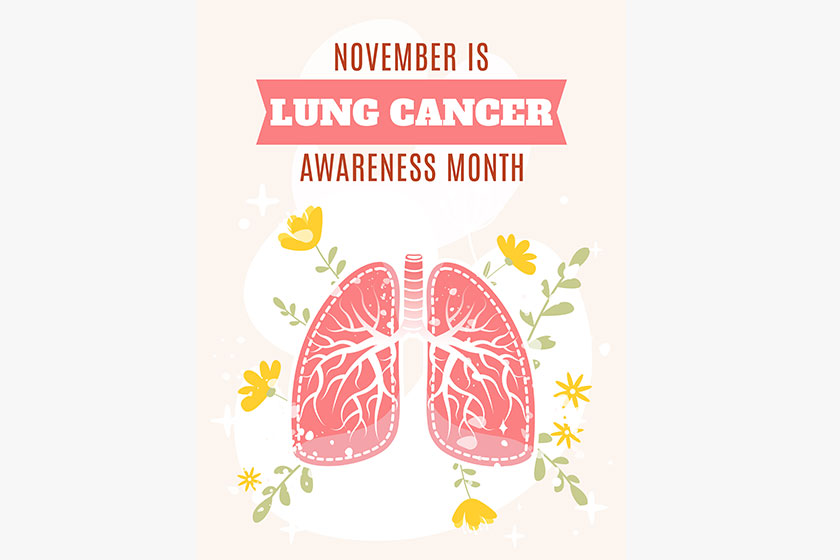The twilight years should be a time of reflection, joy, and fulfillment, not overshadowed by the specter of illness. Yet, lung cancer looms as a formidable challenge, particularly for our seniors, making the early detection of its signs an imperative quest for preserving life’s precious moments. This article seeks to be a beacon of hope and a guide through the often-misty path of recognizing lung cancer’s subtle early warnings. With a compassionate embrace and a commitment to empowering our elders and their families, we aim to illuminate the steps toward early intervention, painting a future where the golden years are protected by the shield of knowledge and proactive care. Let us delve into understanding the early signs of lung cancer in seniors, arming ourselves with the tools for detection and the hope for effective treatment, and ensuring that every senior has the chance to enjoy their later years with peace, health, and happiness.
Recognizing Early Symptoms
The early signs of lung cancer can be subtle and easily overlooked, which is why awareness is key. Some common symptoms include:
Persistent Cough
A cough that persists for several weeks or longer, especially if it’s not related to a cold or other respiratory infection, can be an early sign of lung cancer. Pay attention to any changes in the nature of the cough, such as it becoming more severe or producing blood.
Shortness of Breath
Experiencing shortness of breath during activities that were previously manageable can be an early indicator. This symptom might be more noticeable when exercising or climbing stairs.
Chest Pain
Pain in the chest, shoulders, or back that is not related to physical exertion could be a symptom. The pain might be persistent or intermittent and can sometimes worsen with deep breathing or coughing.
Changes in Voice
A change in the voice, such as hoarseness that persists for more than a few weeks, can be an early sign of lung cancer. This symptom might be due to the tumor affecting the nerves that control the vocal cords.
Unexplained Weight Loss
Losing weight without trying, especially if it’s significant, can be an early warning sign. This symptom is often accompanied by a loss of appetite.
Fatigue
Feeling unusually tired or weak, even after rest, can be an early symptom of lung cancer. This fatigue is often persistent and not relieved by sleep.
Importance of Early Detection
Detecting lung cancer early is crucial for several reasons:
Improved Treatment Options
Early-stage lung cancer often has more treatment options available, including surgery, radiation, and targeted therapies. These treatments can be more effective when the cancer is in its initial stages.
Better Survival Rates
The survival rate for lung cancer is significantly higher when the disease is diagnosed early. Early detection can lead to a better prognosis and increase the chances of successful treatment.
Enhanced Quality of Life
Early intervention can help manage symptoms more effectively, leading to an improved quality of life. It can also reduce the likelihood of the cancer spreading to other parts of the body.
Risk Factors and Prevention
While understanding the early signs is crucial, it’s also important to be aware of the risk factors associated with lung cancer. These include:
Smoking
Smoking is the leading cause of lung cancer. The risk increases with the number of years and the amount of tobacco smoked. Quitting smoking, even later in life, can significantly reduce the risk.
Secondhand Smoke
Exposure to secondhand smoke can also increase the risk of lung cancer. Avoiding environments where smoking is prevalent is advisable.
Environmental Exposures
Exposure to certain substances, such as asbestos, radon, and air pollution, can increase the risk of lung cancer. Taking measures to reduce exposure to these substances is important.
Family History
Having a family history of lung cancer can increase the risk. It’s essential to inform your healthcare provider if lung cancer runs in your family.
Age
The risk of lung cancer increases with age, with the majority of cases diagnosed in people aged 65 and older. Regular check-ups and screenings are crucial for early detection.
Vigilance in recognizing the early signs of lung cancer in seniors is a vital step toward safeguarding their health and well-being. It’s not just about identifying symptoms; it’s about nurturing a culture of awareness, proactive care, and timely medical intervention. As we arm ourselves with knowledge and embrace the importance of regular screenings, we create a stronger defense against this formidable adversary. Let us commit to a future where early detection is the norm, not the exception, ensuring that our golden years are not tarnished by the shadow of lung cancer but illuminated by the promise of health, vitality, and longevity.







